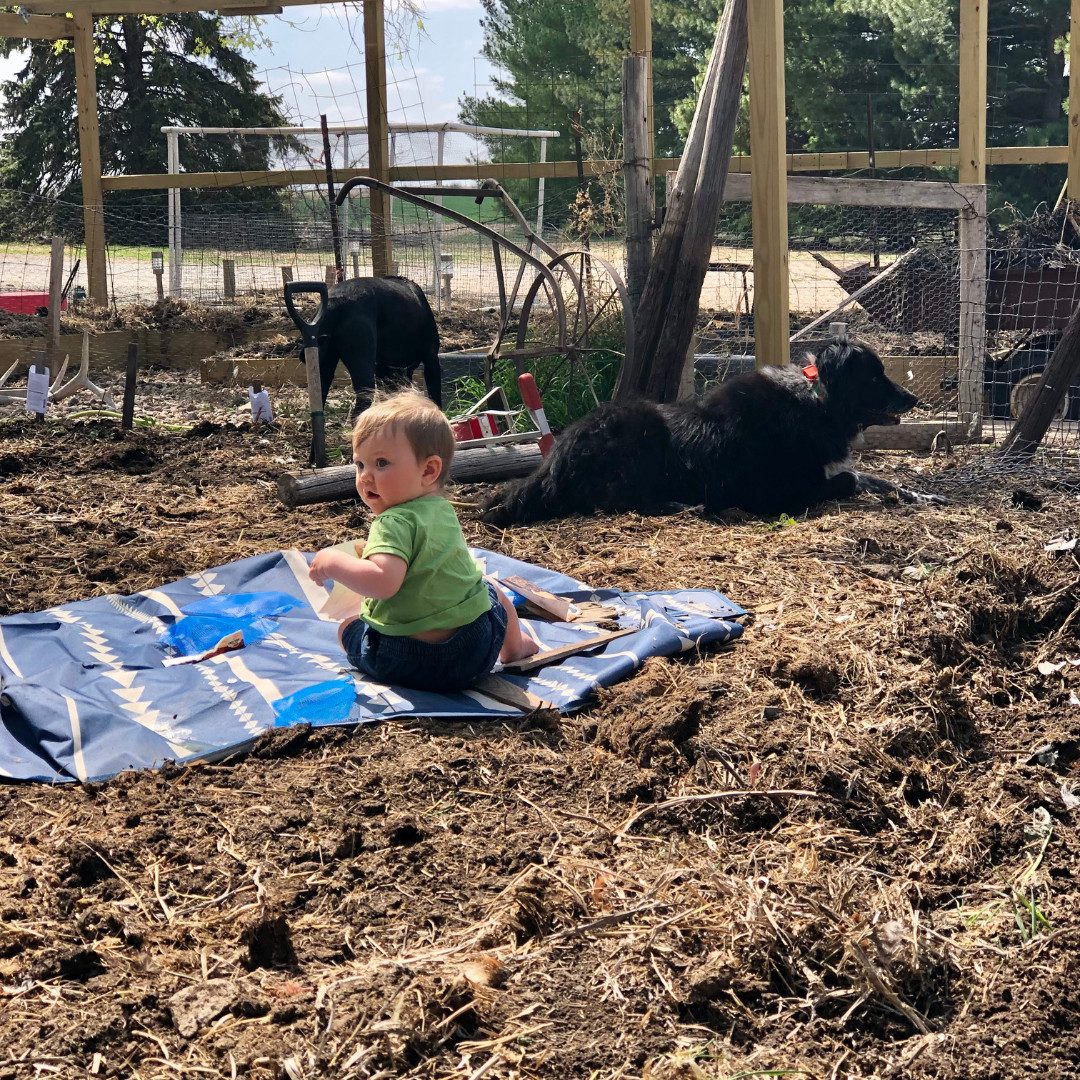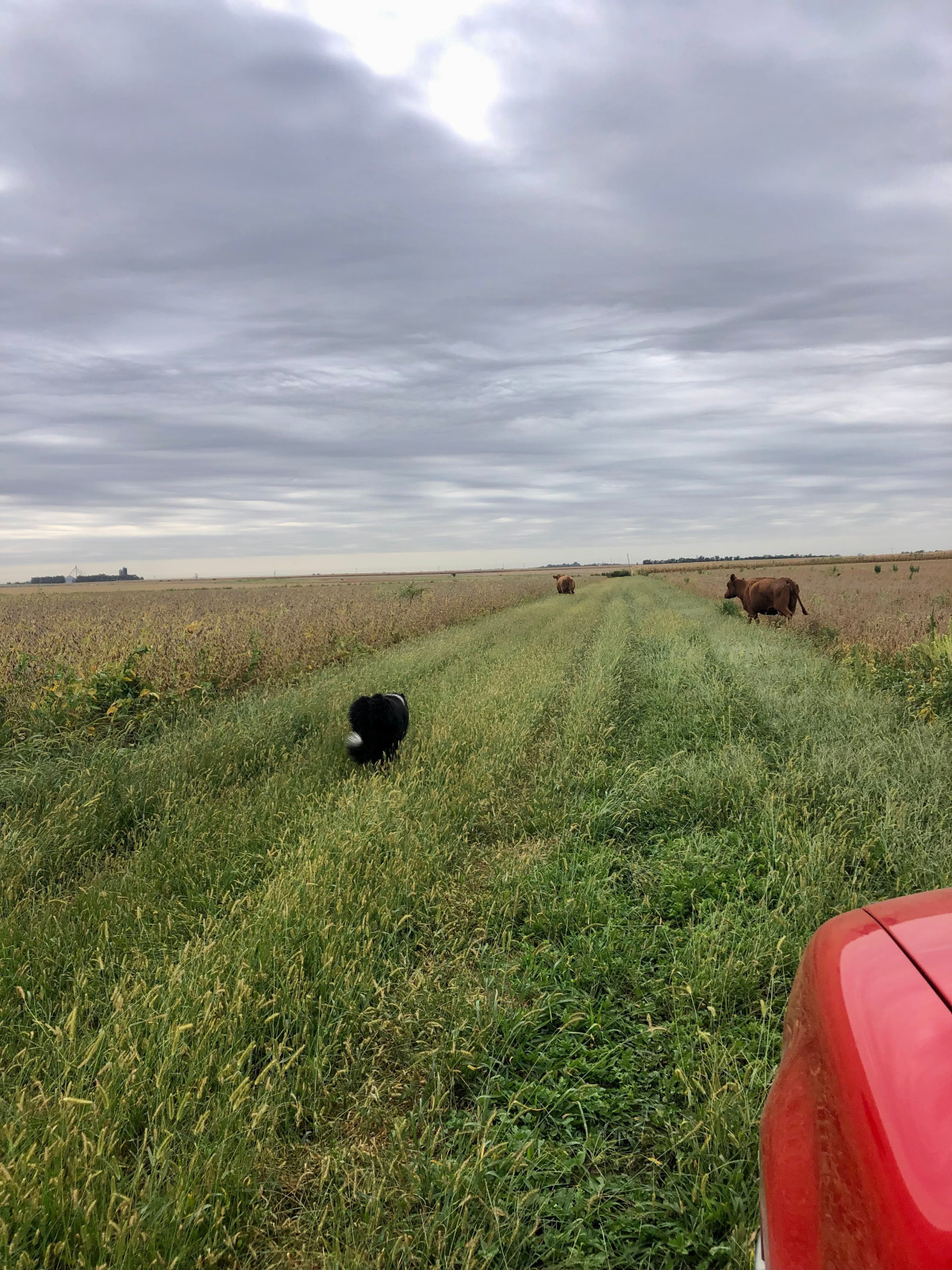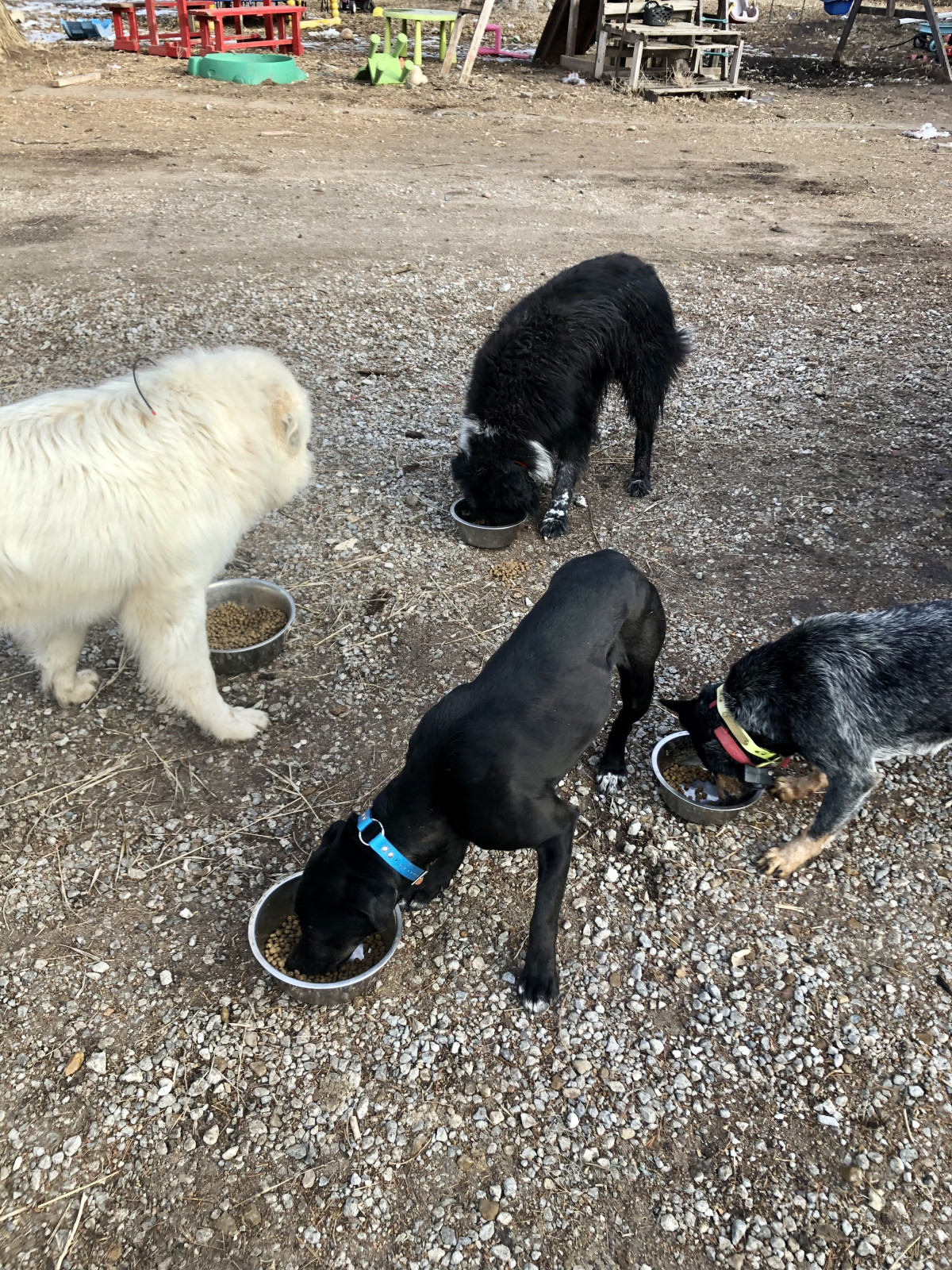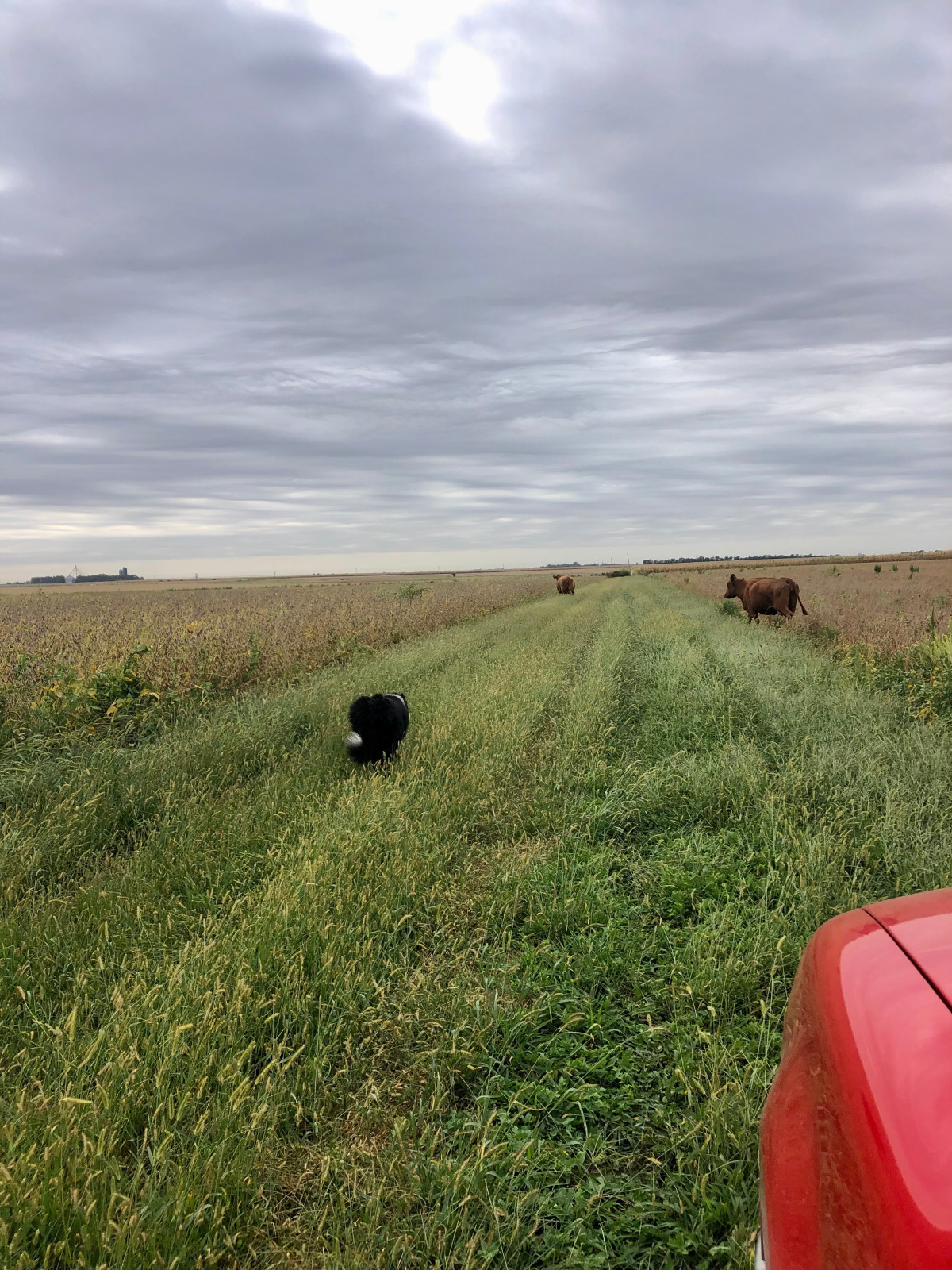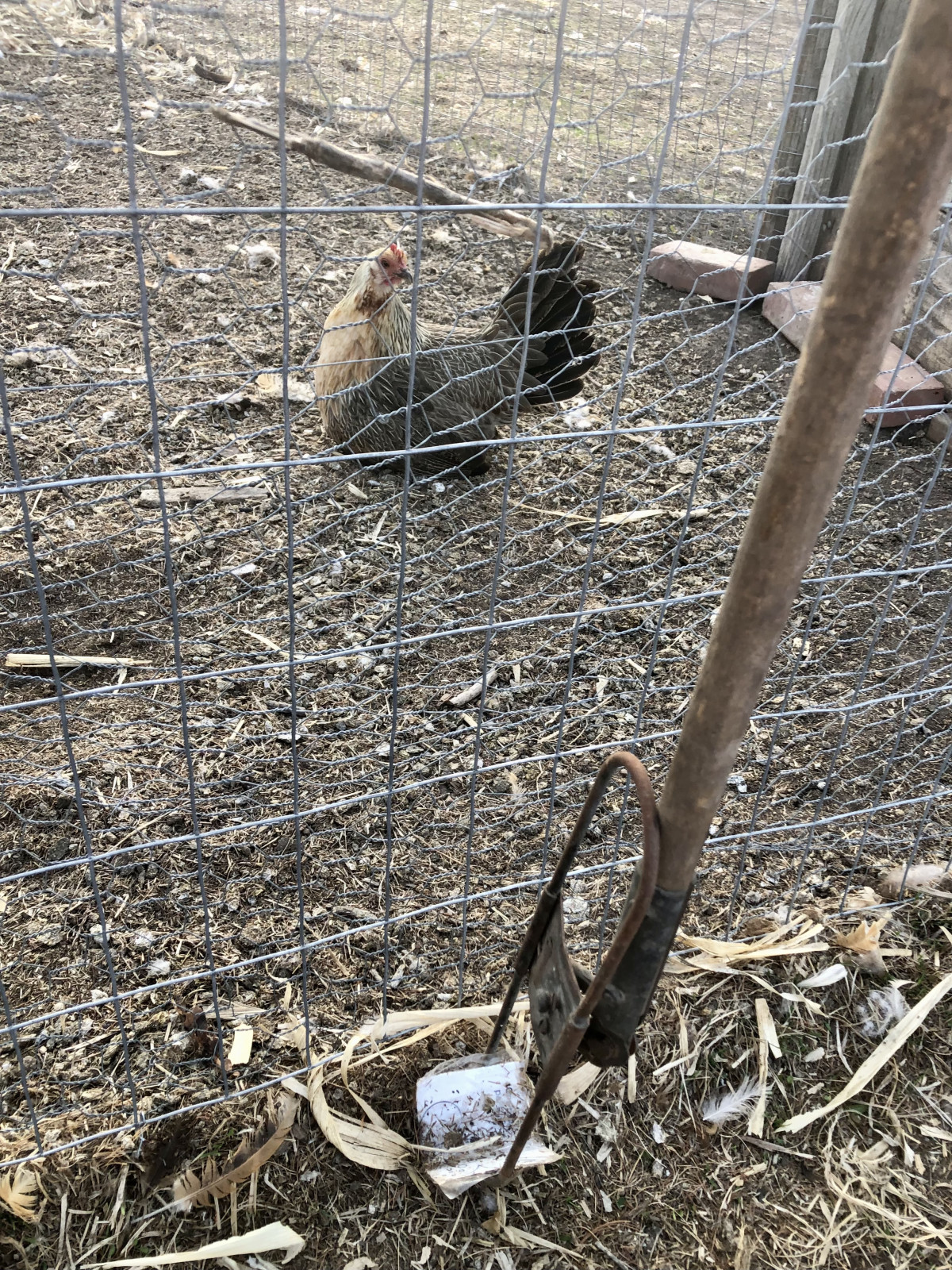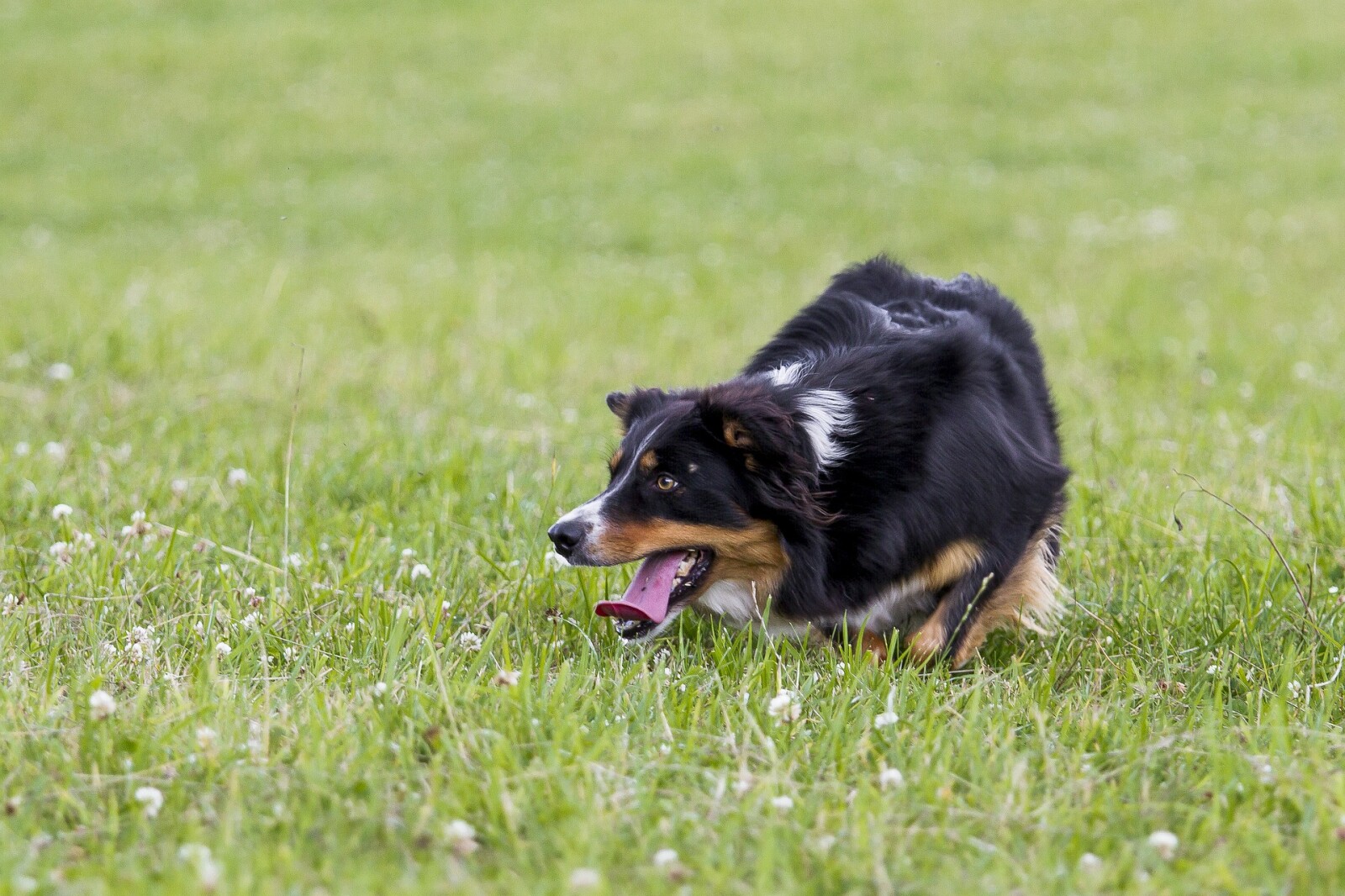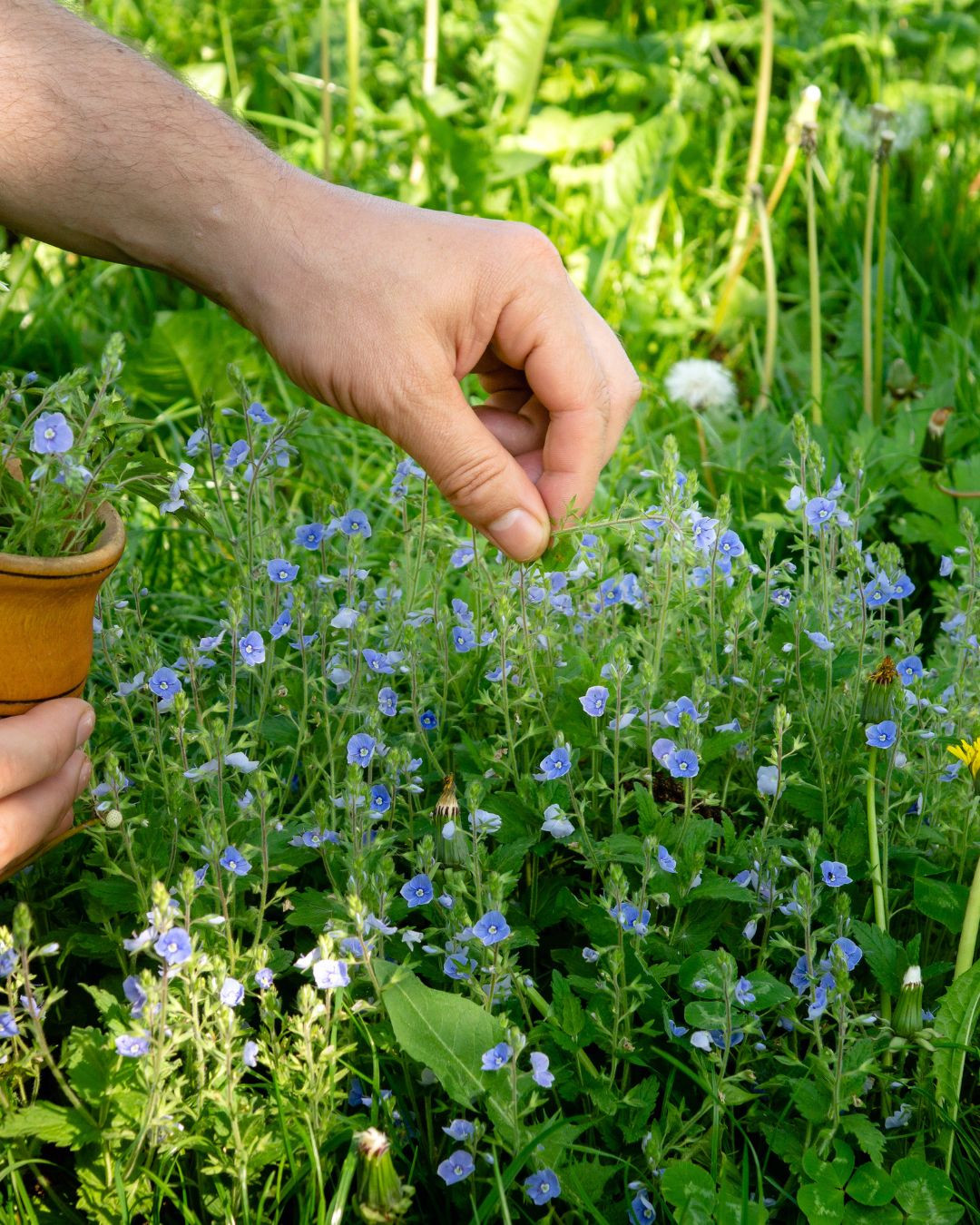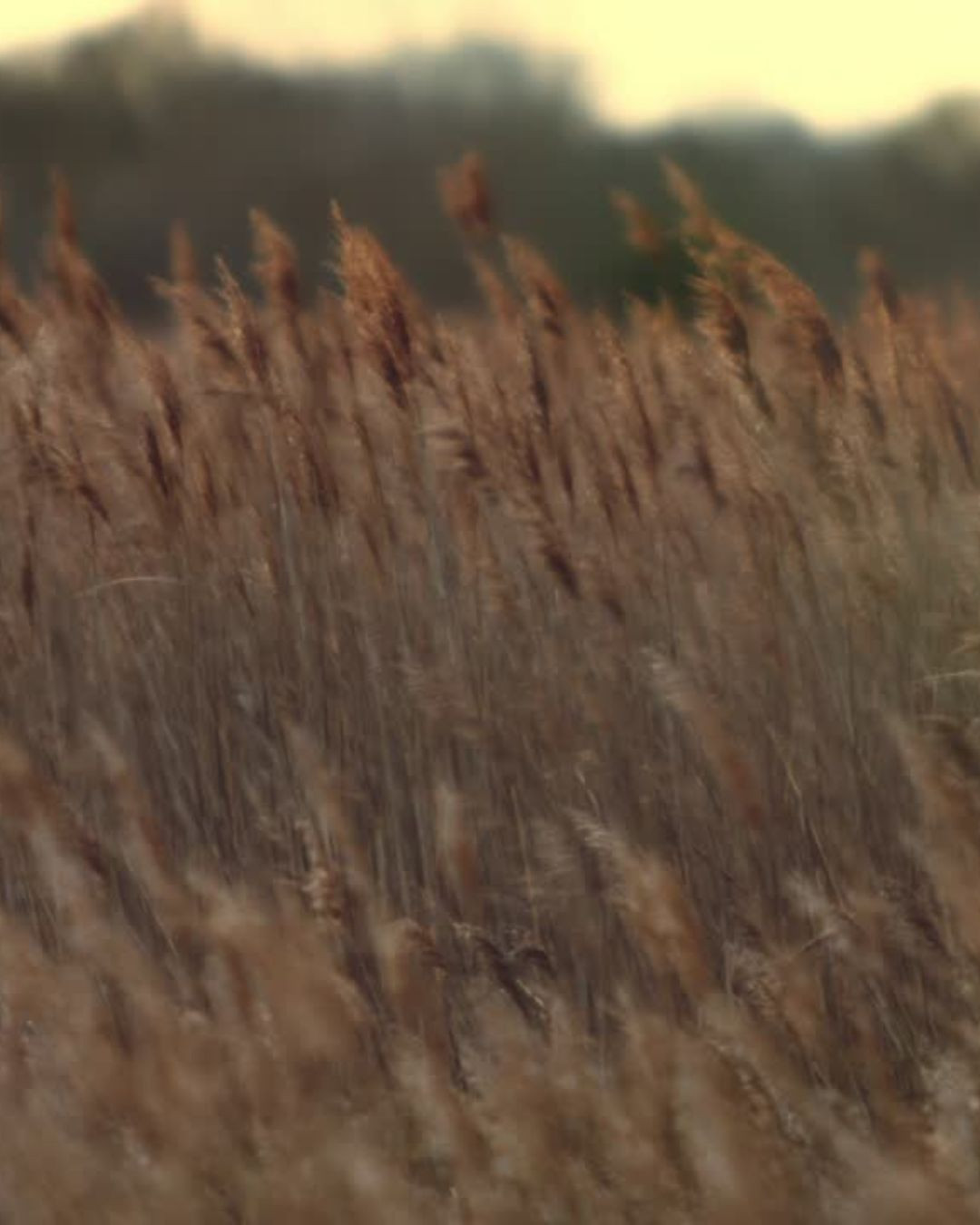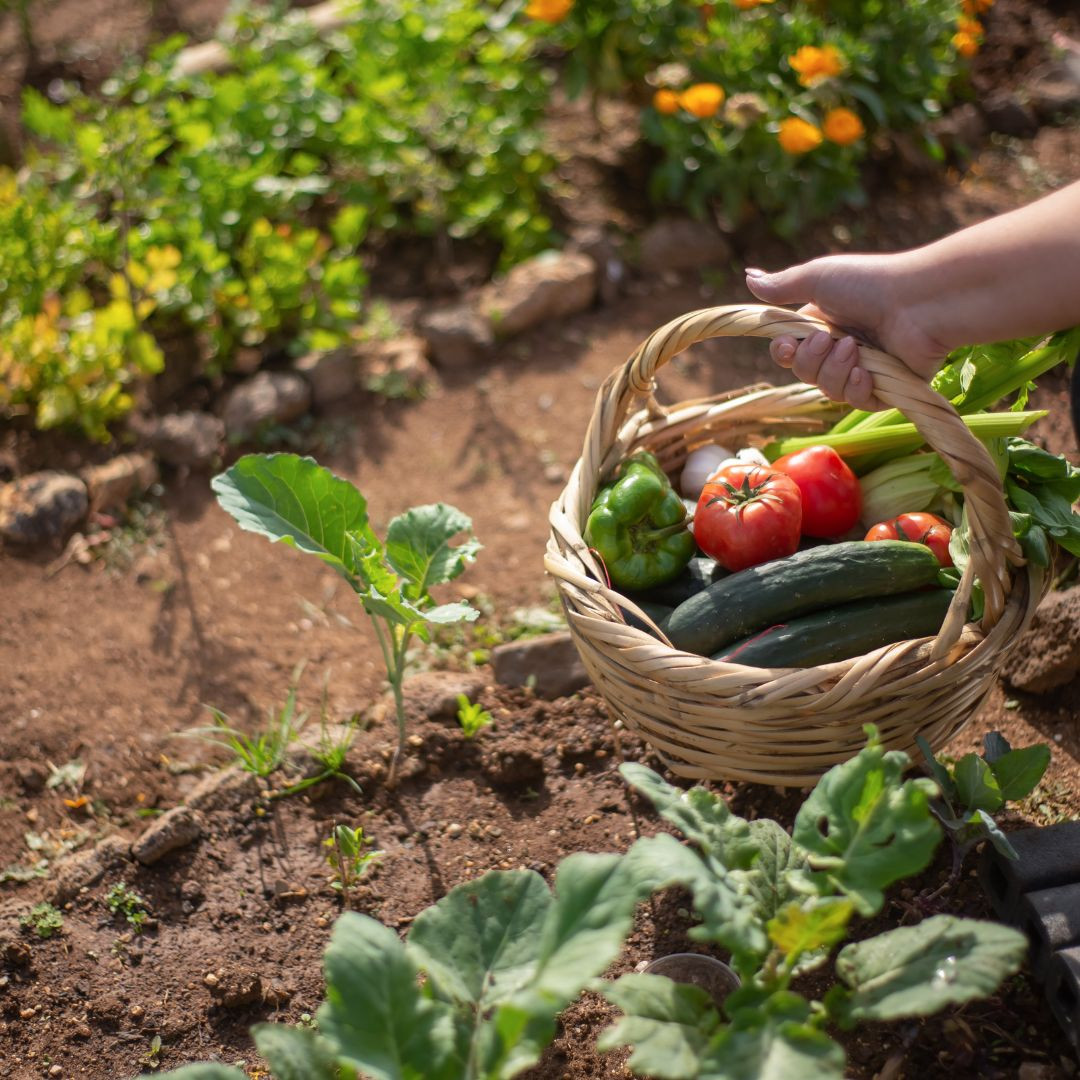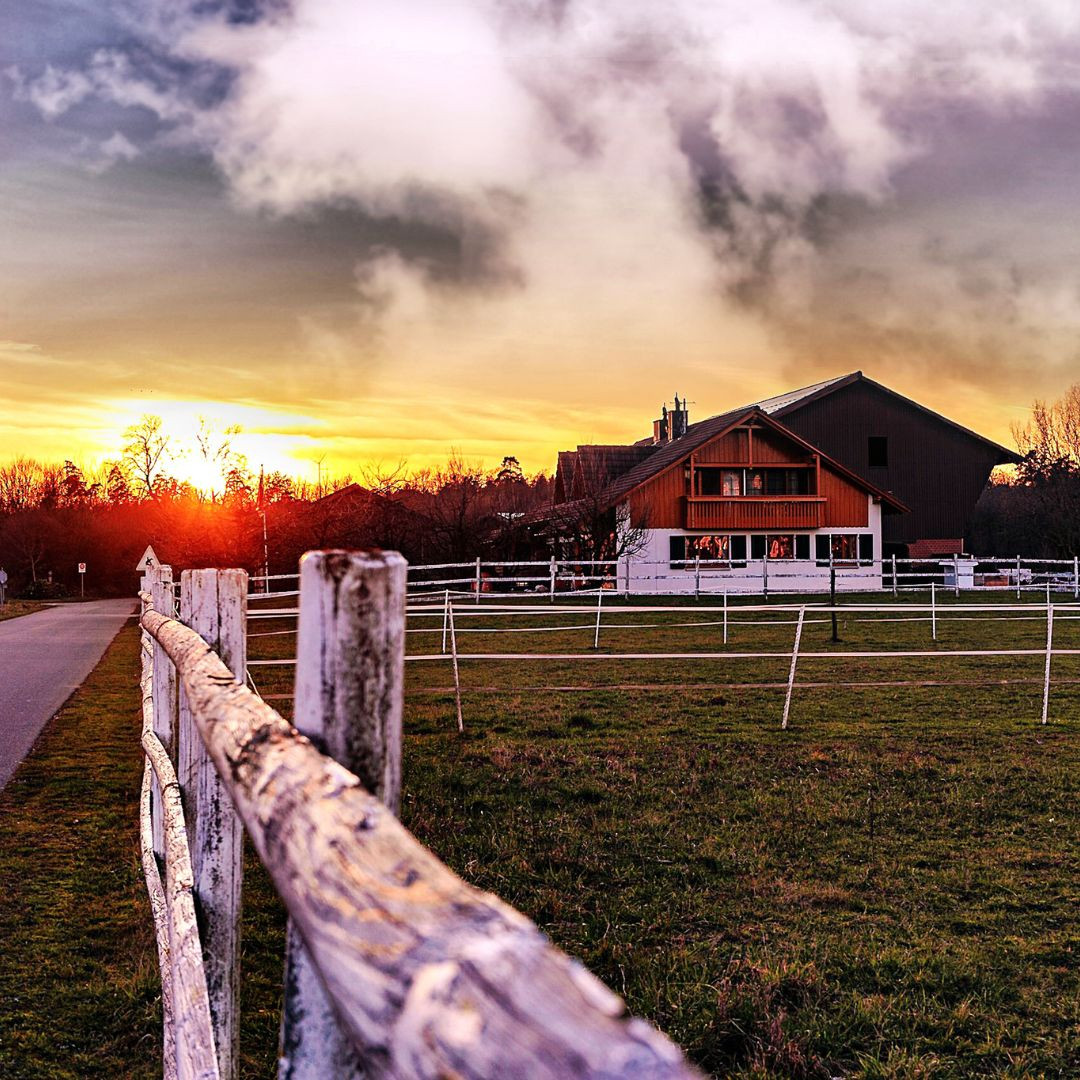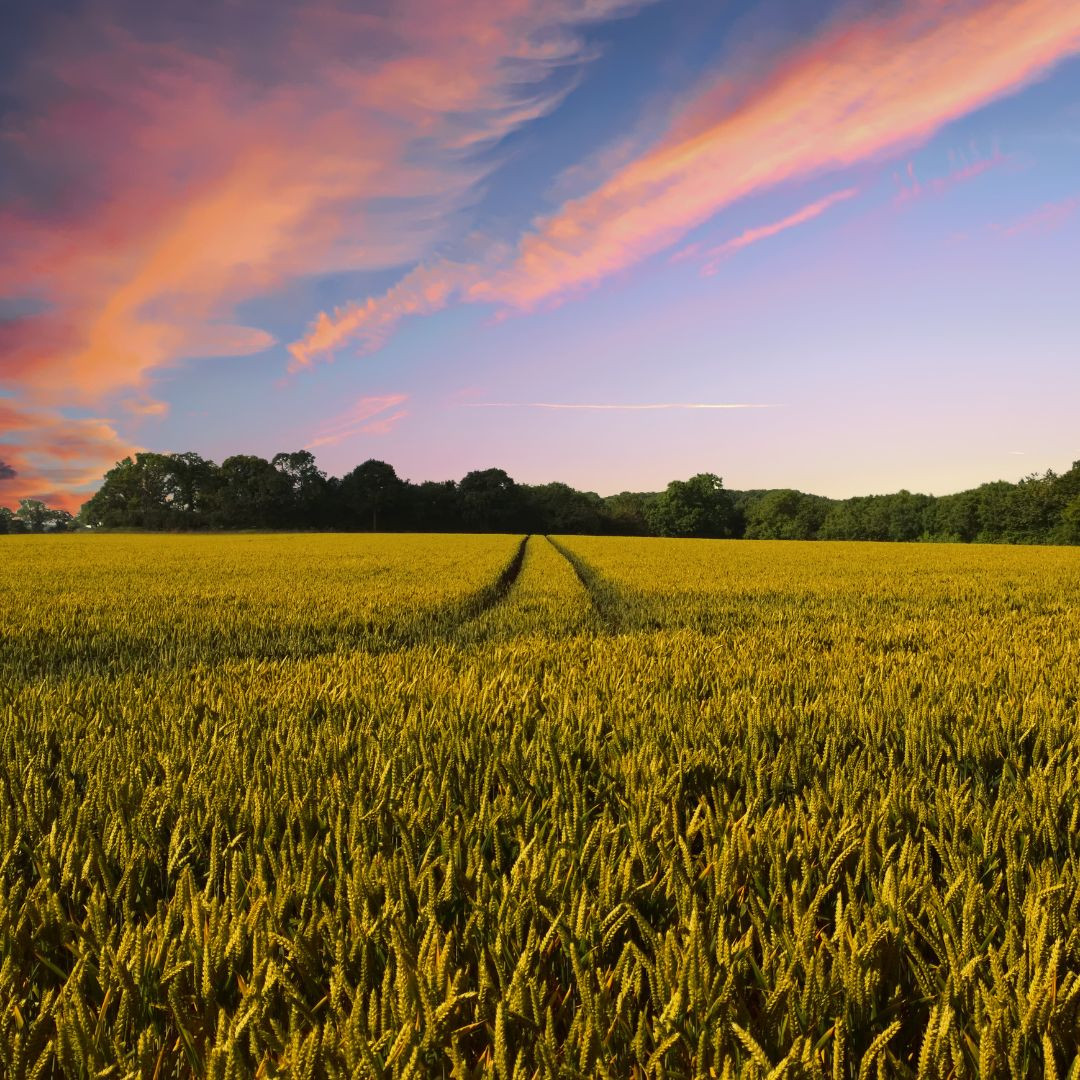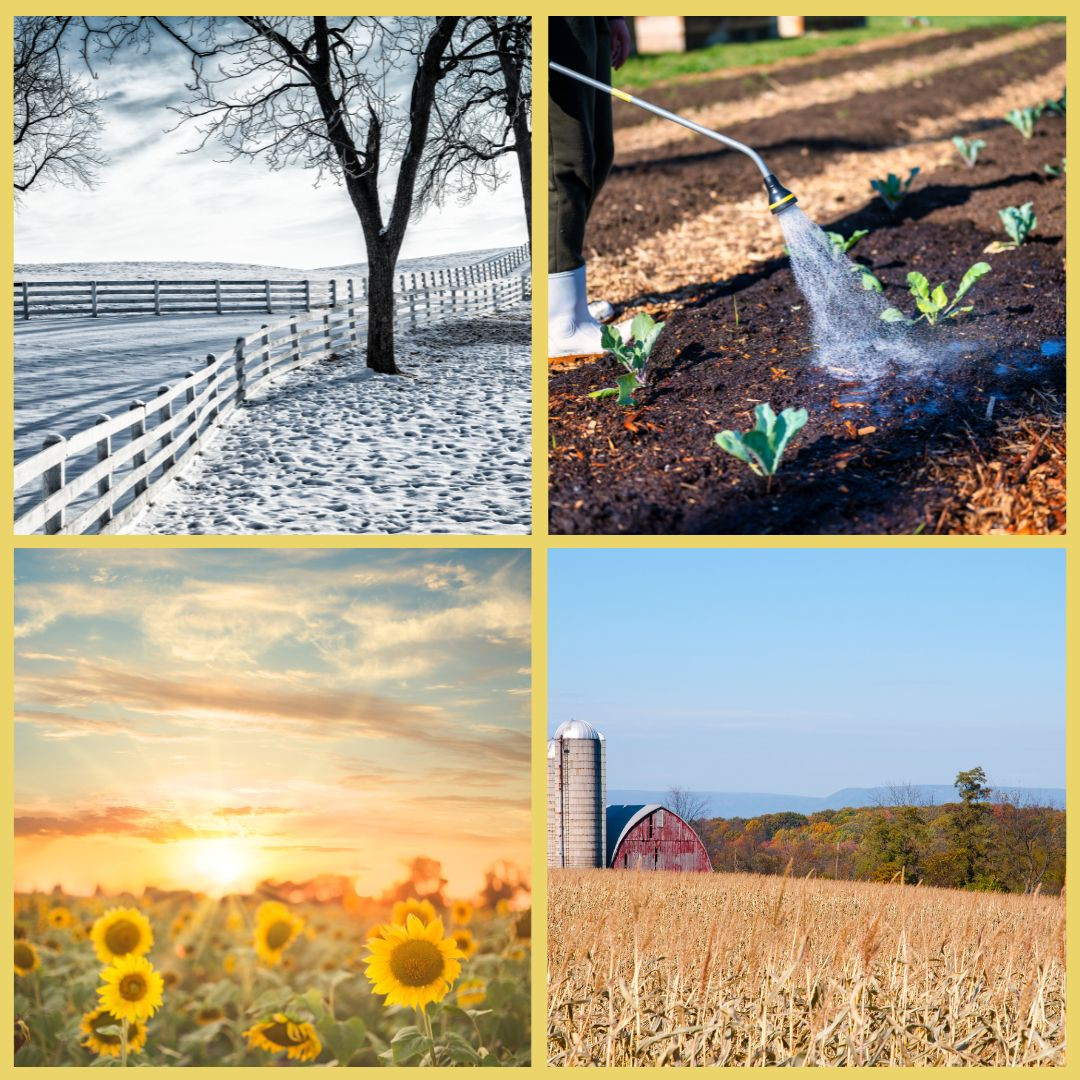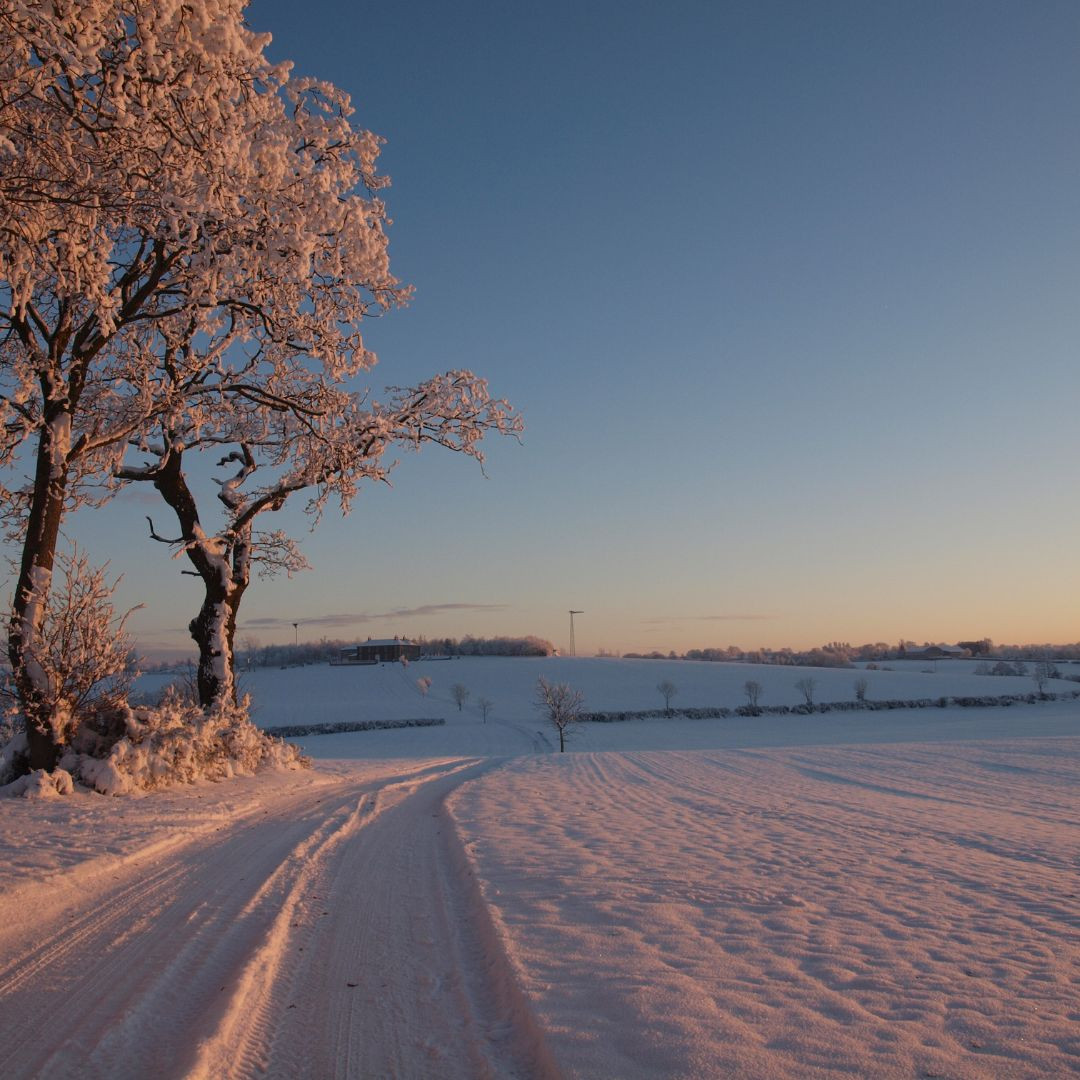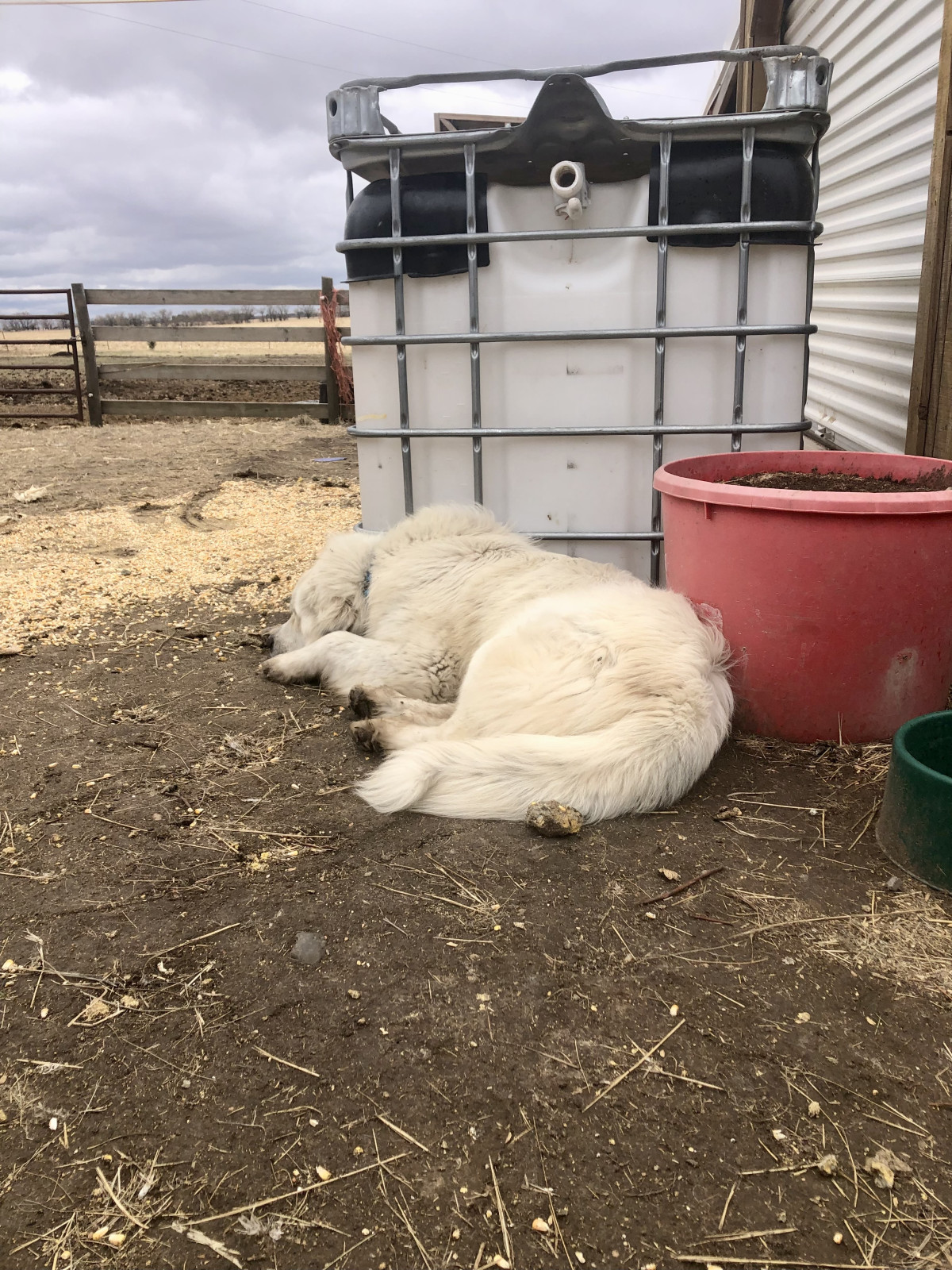
Support animals are animals that don’t directly feed you or your family but help you to care for the animals that do or help you to care for those animals. The goal of any homestead or farmstead is to have all the animals integrated into a system that works together to support each other. For example, the horses don’t feed my family directly, but they produce the fertilizer for the garden and help move the cows around, which do feed my family. So how do you feed them all? Let's take a look!
Bees
These could be debated as a support animal because they do feed my family with the honey they produce. However, they mostly feed themselves and help with pollination in my garden and orchard. The biggest thing with bees is making sure they have water, ideally close, bees will fly 2 miles for resources. However, I want them drinking from my water, not the pivots around us. I usually just leave a board in the closest pool/water tank, and they quickly learn to get water from there. Really this water is then watering multiple livestock.
As far as feeding the bees, going into winter you want to make sure they have 2 deep boxes full of honey, in Nebraska. I then put an emergency feed of sugar, sprayed with water to crust it over, on top of the last box. This is because I may not be able to get into the hive and check the bees for 2 months because it is so cold.
Horses
Horses need forage, ideally 20 hours a day. Grass pasture is ideal, but not always accessible. Most horses will do fine with good grass hay, just be aware of mold in the bales. Older horses will need more special feed (you can read more on that in my blog Caring for Your Senior Horse). If more protein is needed, alfalfa can also be fed. Also have a salt block available (iodized if you are in an iodine deficient zone).
Many people feed their horse grain. There are so many options there and will depend on the age and workload of your horse. My horses’ work is light and are easy keepers. They get prairie hay and some oats to deliver their vitamin/mineral supplement. Whole oats are usually an easy and safe option for most horses.
Dogs
Dogs need some kind of food, unless you want them feeding themselves with the chickens. A good farm dog may run free on the property and not need a lot of actual dog food, if they are catching rabbits. However, it is good to have it available for them. Growing up my dogs were free fed from a communal bow. The bowl of food was filled once a day and they at as they felt and shared. Now? I have 4 very different dogs, with very different needs (blue heeler to great Pyrenees). I cannot leave a bowl of food out all day, as the blue heeler would eat herself to death. I do still feed them all together, but in their separate bowls.
The easiest way to feed them is to get them some dog food from your local farm/feed store. You will need to pay attention to the protein amount, as many feeds do not have enough protein for working active dogs. You can feed dogs the scraps of food from the kitchen, and if you have a milk cow or make your own cheese, they love the whey. Our dogs also get other animal organs once a week to stretch the dog food.
I do strongly recommend communal feeding, especially if you have more than one working dog. Dogs that eat together as a pack, work together as a pack. You can retrain them even if they haven’t been eating together. Start with their own bowls and slowly move the bowls closer together. If anyone growls, they lose their food and are sent away from the food circle. There will be days a dog will go hungry, but they very quickly learn to eat together. My dogs now eat all with bowls touching, and the fighting has greatly decreased.
Cats
News flash, barn cats can survive on dog food. I know, send me the hate mail now, but here me out. The main difference between cat and dog food is most dog foods don’t have taurine, and definitely not enough to meet a cat’s needs. Dog food also tends to be lower in arachidonic acid, niacin, and vitamin A than cats need. Here’s the thing, if your barn cats are doing their job, hunting mice and small rodents), they are going to get those nutrients.
The key with barn cats is to feed them some, enough to keep them around, but not enough that they don’t want to go hunting for the mice around the barns. Also only feed them in the morning or early afternoon, so the food is cleaned up before evening when the opossums come out.
Feeding your support partners doesn't have to be complicated. There are a few things to keep in mind though to make sure everyone stays healthy.
As I've grown in my journey as an entrepreneur, mom, gardener, and livestock owner, I struggled to find a planner that met my needs and kept me organized. So, I MADE MY OWN. You can take a look at it on the link blow and buy it on amazon below:
Don't want the whole calendar part? I got you! I pulled the gardening and animal care pages out and put them in a book all their own.
Wanting a community to lean into? Join the FREE Helping Your Family Homestead for Food group! This community is for the Mommas, looking to stay home and raise their kids, but unsure how to keep everyone fed and make ends meet. I share tips from my journey from the office, to half the income and feeding my family from home, while maintaining good nourishing food. Tips include: gardening, bulk buying, caning,/preserving, livestock, homesteading, and home remedies. Your family is precious and this group is to help you gain the knowledge and tools to keep your family well and not reliant on outside professionals. Remedies and tips are easy and simple for the busy momma, time is precious after all, including pregnancy, birth, young kids, and illness. Trust your Momma gut again! This community offers the resources + community you need to help get started on your journey and prepare for whatever future you envision.
Starting to garden doesn't have to be hard! I gathered all the tips I've learned over my gardening learning curve and made them into a simple course to jump start your gardening your life.
Supporting Your Family Naturally From the Inside Out community!! This community is for the Mommas, looking to Support Your Family from Nature for Wellness. Tips range from nutrition, herbals, detoxing, natural cleaning, and essential oils. Basically all the things I’ve learned slowly over the past 5+ years if my journey. We have moved off Facebook, so to better serve our community and be able to discuss openly option for providing for your family in the best way possible.
Join the FREE Community
I've had 3 very different pregnancies. After the first traumatic birth, I learned better and how to care for my body naturally and prevent common pregnancy and birth problems before they arise. This quick course will get you the tools you need to have a naturally healthy pregnancy, labor, and delivery. My first pregnancy I had a normal western medicine all the things pregnancy. My second? I flipped to completely natural, no medicine. Bonus: Preventing Preeclampsia Without the Aspirin & Healing from Birth Trauma
Click here to get the stories straight to your email:
For more on wellness tips click here:
For more on homesteading on your budget click here:
For more simple DIY updates click here:
